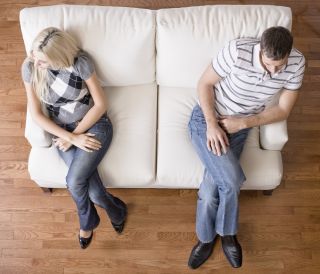Dreaming
Why So Many Partners Want to Be Both Together and Single
A viral essay highlights a growing desire, and a booming trend.
Posted August 3, 2015

Isabelle Tessier's essay, "I Want to Be Single–But With You," has gone viral, amassing more than 182,000 likes, and counting. Here are some examples of what Tessier means when she fantasizes about the man to whom she would say, "I want to live a single life with you":
"I want to eat with you, want you to make me talk about me and for you to talk about you… I want to imagine the loft of our dreams, knowing that we will probably never move in together.
"I don't always want to be invited for your evenings out and I don't always want to invite you to mine.
"I want to be your good friend, the one with whom you love hanging out. I want you to keep your desire to flirt with other girls, but for you to come back to me to finish your evening. Because I will want to go home with you. I want to be the one with whom you love to make love and fall asleep… For our couple life would be the equivalent of our single lives today, but together."
What Tessier does not want is what is celebrated in so many love songs—the longing among couples to be each other's everything. In Singled Out, I called that "intensive coupling" and described it this way:
"Serious partners, in our current cultural fantasy, are the twosomes who look to each other for companionship, intimacy, caring, friendship, advice, the sharing of the tasks and finances of household and family, and just about everything else. They are the repositories for each other’s hopes and dreams. They are each other’s soul mates and sole mates. They are Sex and Everything Else Partners."
Tessier does not want to be enmeshed with the partner she fantasizes about having. And there are hints that many other couples are moving away from the model of intensive coupling, too. For example, in Alone Together, Paul Amato and his colleagues reported that couples in 2000, compared to couples in 1980, were less likely to go out together for fun, have their main meal together, work around the house together, or have as many friends in common.
There is also the practice known as "living apart together." These "dual-dwelling duos" are couples that choose to live apart from each other, not because they must for some reason (such as having jobs in different places) or because they want to feel free to cheat without getting caught, or because they are not really sure they want to be together. They simply want a place of their own, and they want their relationship, too. Many are married; some are even married with children. I devoted a chapter to them in How We Live Now: Redefining Home and Family in the 21st Century. These couples illustrate the contemporary cravings for both time alone and time together.
Tessier's essay frames the life she covets; she calls it "single life," even though what she is describing sure sounds a lot like some version of coupled life. The title of her article is, "I Want to Be Single—But With You," not, "I want to be some kind of couple, just not the 'you-are-my-everything' kind."
After decades in which living single has been stereotyped and stigmatized, is it now becoming something that even couples want a piece of?
Another striking example came from Kate Bolick's recent book, Spinster: Making a Life of One's Own. Her goal, Bolick said, was not "a wholesale reclamation of the word spinster." Instead, she wanted to offer the word as a "shorthand for holding on to that in you which is independent and self-sufficient, whether you're single or coupled." Again, coupled people get to call themselves single, too.
Is this really happening? Are people in couples really trying to say, "Hey, I'm single, too"? If so, I think I like it.


